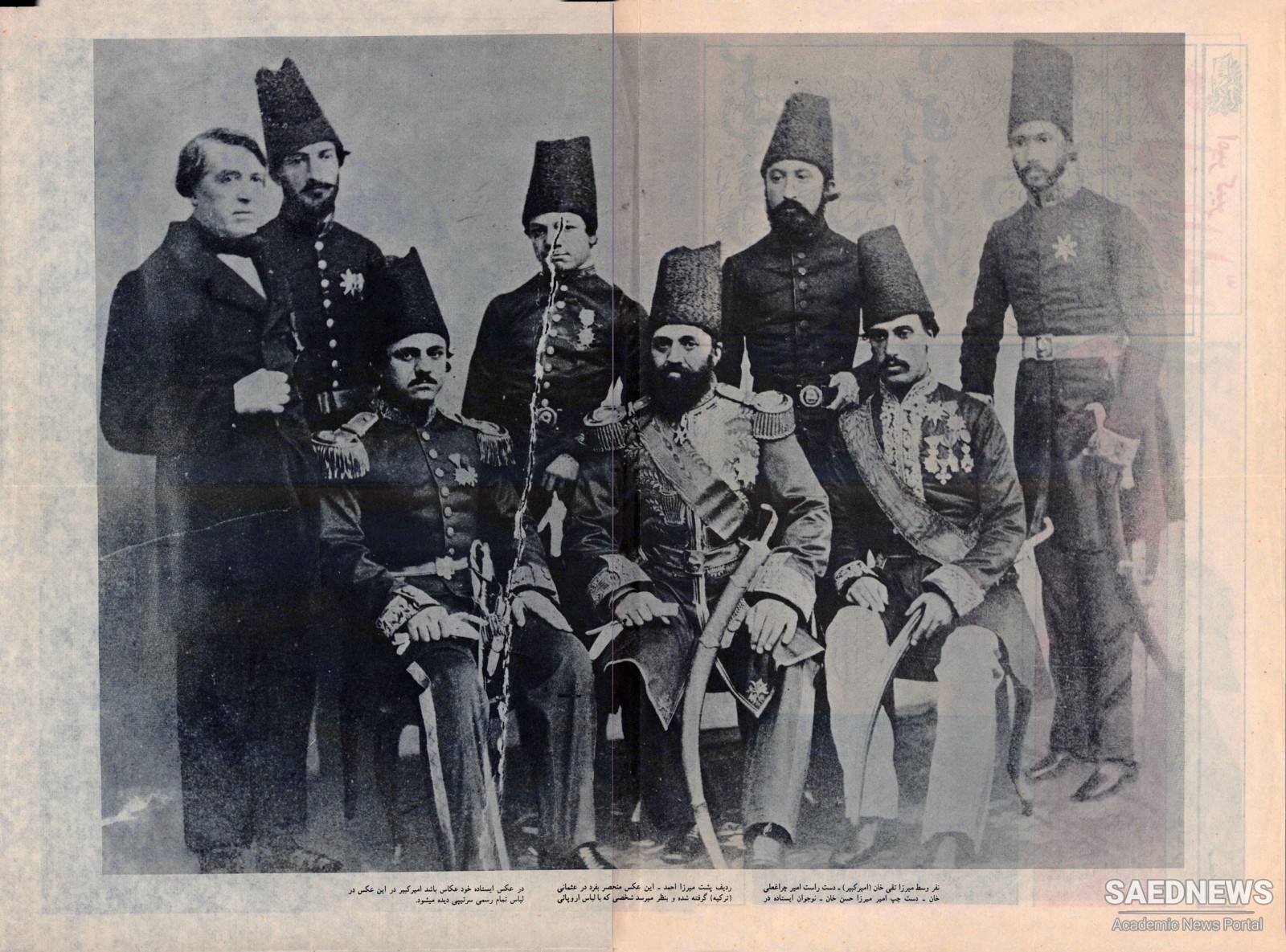Appointed by Nasir al- Din Shah, Amir Kabir proposed a radical reorganization, increased indigenous arms production, new recruitment practices, and bett er training for the offi cer corps. He tried to strengthen Iran from within by asserting the government’s power, assuring the soldiers’ loyalty to the central government rather than landlords or tribal chiefs, and establishing military posts along the trade routes and the frontiers. His official title was Lord of the Army, and, considering himself primarily a military leader, he assumed personal control of the army, administered the provincial forces, and appointed their leaders. Amir Kabir attempted to mandate uniform training and pushed for the prompt payment of offi cers’ and enlisted men’s salaries. He invented the bonicheh system of recruitment, in which every village or town was ordered to provide the central government with men. By 1851 the Iranian army had a nominal strength when fully mobilized of 137,000 men, although it never assembled such a large force.
In the same year, Amir Kabir established the Dar al- Fonun (the Polytechnic School or Academy of Applied Sciences), using advisers from France and Austria- Hungary, and he encouraged education abroad in the military sciences and in industrial technology. The Dar al- Fonun was the fi rst government- sponsored European- style educational institution in Iran and the Middle East. The school was intended to serve primarily as a military academy and was built in the royal citadel in Tehran. The third superintendent was a military offi cer who established strict military discipline and cemented the martial nature of the institution. Its courses included military engineering, French, medicine, sciences, cartography, military history, and military strategy and drill. Nearly half of the students specialized in military subjects, and, in addition to classroom instruction, these military students were given field training.
One group accompanied their instructors on the Herat campaign of 1857, and according to an Iranian newspaper article from 1852, the institution’s students were given fi eld training in the art of commanding garrisons and combat in the desert. The school also taught Arabic and theology to legitimize itself in the eyes of the clerical establishment. Because Iran’s elementary and secondary schooling programs were so poor, the Dar al- Fonun was more on the level of a French secondary school than a university.
Still, the school made a start at increasing military professionalism by building on a program initiated by Abbas Mirza to translate European books and articles into Persian. Among the translated works were Gibbon’s Rise and Fall of the Roman Empire, Voltaire’s Charles the XII of Sweden, and The History of Alexander the Great as well as a few books about Napoleon Bonaparte. Over the years, other military- related books and articles translated by the Dar al- Fonun included Treatise on the Science of Artillery, The Soldier’s Whole Duty, Military Drill Book, The Movement of Troops, and The Siege of Paris. The school also translated some works of fiction, including The Three Musketeers, The Count of Monte Cristo, Robinson Crusoe, and Gulliver’s Travels.
Amir Kabir’s primary goals were national unity and self-sufficiency, which the shift ing European alliances reinforced, especially in the area of arms production. Amir Kabir formed a garrison in Tehran staff ed with men from all of the provinces to create one true national force while establishing fifteen modern armament and equipment factories to help achieve the latter goal. Earlier, Abbas Mirza, unhappy that he had to rely on European- made weapons for two wars with Russia, established factories to produce gunpowder and weapons while stockpiling other European weapons, maps, and machines. The crown prince also arranged to send Iranians as students to Europe to develop needed military, technical, and medical skills. These students put their foreign education into practice on their return as they were given high positions and great responsibilities, including roles as court physician, diplomat, head of artillery, chief army engineer, and head of the royal arsenal.
The attempted reforms, however, increased the government’s need for cash to buy weapons and maintain the army, which contributed to the Qajars’ fi nancial problems and increased opportunities for corruption. When Amir Kabir tried to curb the profi teering, theft , and nepotism that affl icted the military system, he developed enemies in the court. Nasir al- Din also was wary of Amir Kabir’s championing of the Dar al- Fonun because he associated the school with dangerous European political ideas. As the Great Lord’s achievements grew, he incited jealousy among the royal family. He was assassinated aft er the shah, fearful of Amir Kabir’s power and efficiency, removed him from offi ce in 1851, shortly after the Dar al- Fonun was opened.


 Crown Prince Abbas Mirza and Qajar Military Reforms
Crown Prince Abbas Mirza and Qajar Military Reforms














































